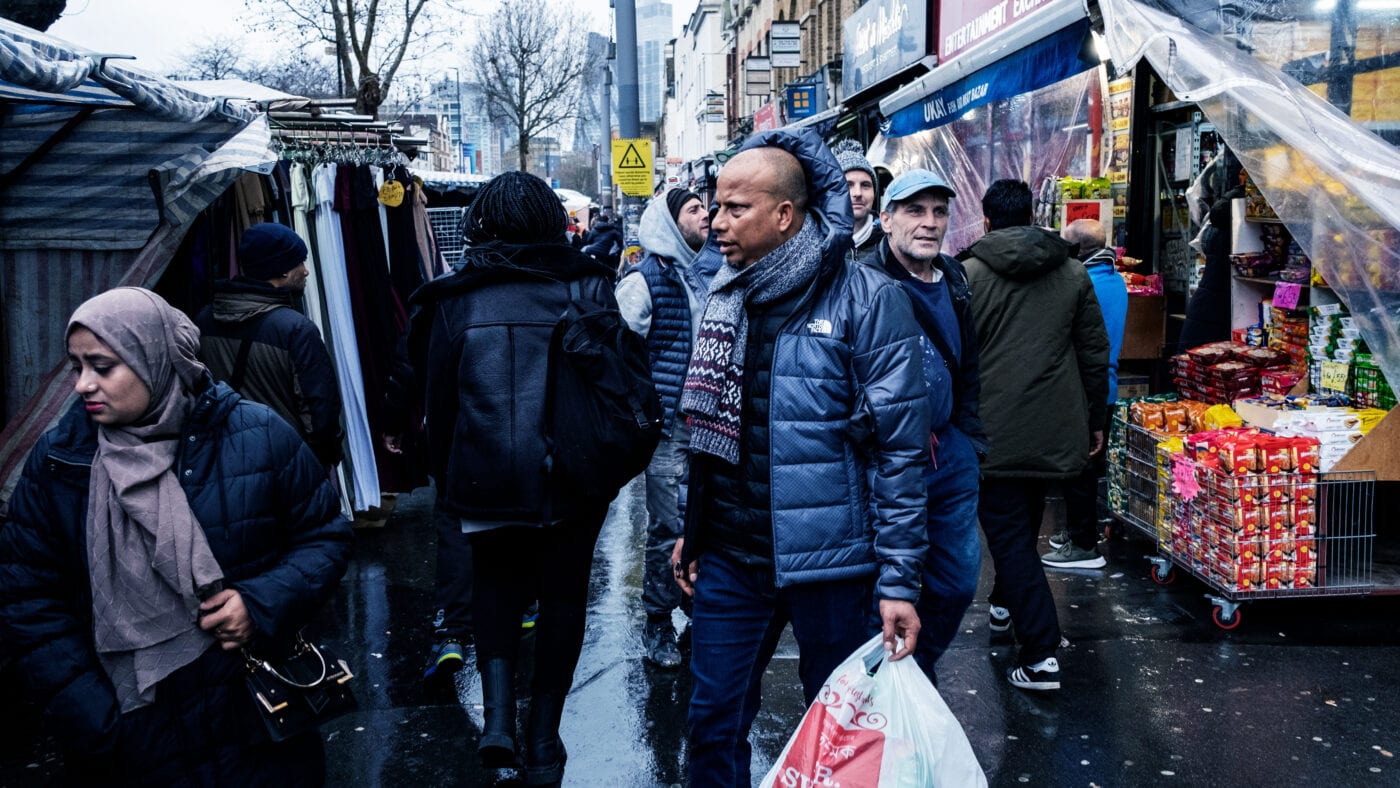Since the August-September 2022 Leicester disorders, there have been in the region of 150 arrests or interviews without caution, along with multiple weapons-related convictions. Subcontinental-style sectarian violence, primarily between young Hindu and Muslim men, spilled over onto the streets of a regional English city. Yet after all this we heard barely a peep from national political leaders.
Shortly after the riots, polling commissioned for my new independent report found that nearly half the British people – 46% – believe that more needs to be done to strengthen relations between Britain’s ethnic and religious communities. This included a majority of people who backed Labour at the last UK general election (71%) and majority of those aged 18-24 years (56%) – voter groups which are more likely to live in urban diverse areas and have multi-ethnic backgrounds themselves. That suggests that more left-wing voters and younger people don’t necessarily hold uncritical views of modern, multicultural Britain.
How we go about building a more cohesive society is an altogether more vexed question. The textbook response from the socially conservative right has normally been that newcomers to this country should assimilate into the British mainstream, learn English and pass Norman Tebbit’s ‘cricket test’. Now, some of that approach makes sense – you can’t expect to play a full part in a country’s life if you can’t speak the language well. But the irony is that ethnic minority groups are now being asked to assimilate into a culture that has moved very far from what most social conservatives would themselves feel comfortable with.
After all, the UK is now a global leader when it comes to family breakdown – a land of crashing marriage rates, increasing numbers of single-parent households and shocking levels of loneliness among our elderly. Much of this is anathema to, say, south Asian immigrants who place a great deal of stock in marriage, family ties and looking after their elders. Bandying about stock phrases like ‘British values’ – as many politicians have been wont to – can seem puzzling when much of British society looks dysfunctional and, in some cases, downright dangerous.
What we need is a ‘new deal’ for social cohesion, a liberal-conservative compromise that reflects the views and concerns of the British public. That means recognising immigrants’ contribution to the country and encouraging dialogue between different groups, married with the promotion of some classically British principles: equality of opportunity, respect for the rule of law, democracy and freedom of association. This model for social cohesion should champion those who serve in institutions ranging from the NHS to the Armed Forces.
What does that mean in practice?
Our schools certainly have a role to play in nurturing the next generation of well-rounded citizens – preparing them for adult life in Britain’s ever-diversifying liberal democracy. In terms of the teaching of British history, for instance, there should be a greater emphasis on uplifting stories of multi-racial solidarity in our most testing times – whether it is the South Asians, Africans, and Caribbeans who played their part in the Allied defeat of fascism, or the enterprising and dedicated ethnic minority doctors and nurses who filled NHS vacancies in its early years.
Troubled neighbourhoods
In terms of the nuts-and-bolts of social-cohesion policy, the existence of ‘troubled neighbourhoods’ defined by ethno-religious diversity, material deprivation, low social trust and political disaffection must be addressed. These areas tend to be represented by Labour MPs and in Labour-controlled local authorities, but should be firmly on the radar of the Conservative government – especially from a law-and-order and counter-extremism perspective. Ultimately, people from different communities tend to want the same things, and a safe, secure local area is top of the list for many. Beefing up policing, stopping repeat offenders and punishing those who break the law properly are principles Britons of all backgrounds can get behind.
Central government and local authorities should work together to develop ‘neighbourhood plans’ for areas at risk of public disorder – essentially localised integration strategies – designed to both regenerate and bolster institutional trust. Indeed, for the most troubled places, these plans should be published by local authorities every few years as part of how they respond to the Public Sector Equality Duty (PSED), which requires them to eliminate unlawful discrimination, advance equality of opportunity, and foster good relations. This process should also involve other public bodies such as local NHS trusts, state schools, and the police.
Britain is a relatively successful multi-ethnic, religiously-diverse democracy – but the Leicester disorders served as a brutal reminder that we must not rest on our laurels. The country needs robust and effective cross-party leadership when it comes to integration – it must no longer be a ‘political orphan’. Elected representatives, at both national and local level, shouldn’t pander to narrow group-based interests or indulge foreign-inspired religious identity politics. Politicians who are complicit in such activities are failing to act in the broader social interest and ultimately undermining British democracy – it is a fundamental dereliction of duty.
Nor will empty platitudes such as ‘diversity is our strength’ cut it. Diversity is only a strength if it is tied together by shared liberal democratic values, bonds of mutual understanding, and common attachments to civic institutions.
Click here to subscribe to our daily briefing – the best pieces from CapX and across the web.
CapX depends on the generosity of its readers. If you value what we do, please consider making a donation.


